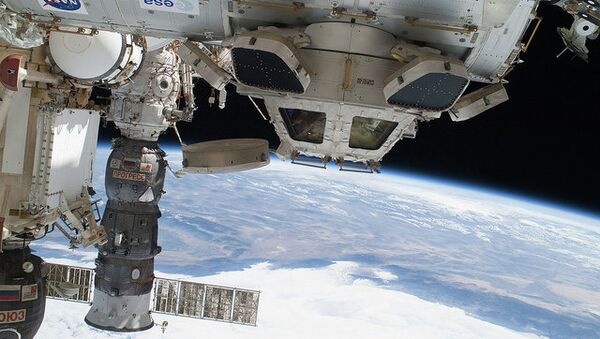WASHINGTON, October 6 (RIA Novosti) – The US Government Accountability Office (GAO) is expected to make a ruling in the Sierra Nevada Corporation's legal challenge against the National Aeronautics and Space Administration by January 5, 2015, NASA spokesperson Allard Beutel told RIA Novosti Monday.
"NASA is confident in their [GAO's] evaluation process," Beutel, who is the news chief for Media Services in External Relations at NASA's John F. Kennedy Space Center (KSC), said.
On September 26, Sierra Nevada Corporation announced it had filed a legal challenge disputing NASA's contracts awarded to Boeing and SpaceX for the Commercial Crew Transportation Capability (CCtCap) program. CCtCap was created to reestablish US travel capabilities to the International Space Station (ISS).
According to Beutel, NASA has asked Boeing and SpaceX to stop performance on the CCtCap program until further notice. Other work by Boeing and Space X performed under the Commercial Crew Program (CCP) is allowed to continue.
Sierra Nevada Corporation maintains it can provide these services at a substantially lower cost than its competition using vehicles that have more advanced capabilities and enhanced potential for future endeavors. Sierra Nevada Corporation states the program could cost American tax payers up to an additional $900 million through their competitors.
NASA currently pays Moscow $70 million for every astronaut carried into space by Russian Soyuz launchers, according to the latest deal signed last year and in effect until 2017.
On September 17, NASA announced that it had signed a $6.8 billion contract with Boeing and SpaceX to build its own spaceship, to carry US astronauts to the ISS starting in 2017.
Initially, NASA intended to launch the first astronauts under the new CCP by 2015, however, budget issues postponed it until 2017.
Attempts at launching a commercial space program were made during George W. Bush's presidency but President Barack Obama's administration has not shown much support for the initiative, causing time delays.
NASA hopes to carry out two trips to the ISS a year, on average.
It is planned that the Boeing CST-100 and SpaceX's Dragon crewed spacecraft will lift off from the KSC Cape Canaveral launch complex and carry four-person crews to the ISS, where they will remain docked for 210 days, and then fly the astronauts back to Earth.


